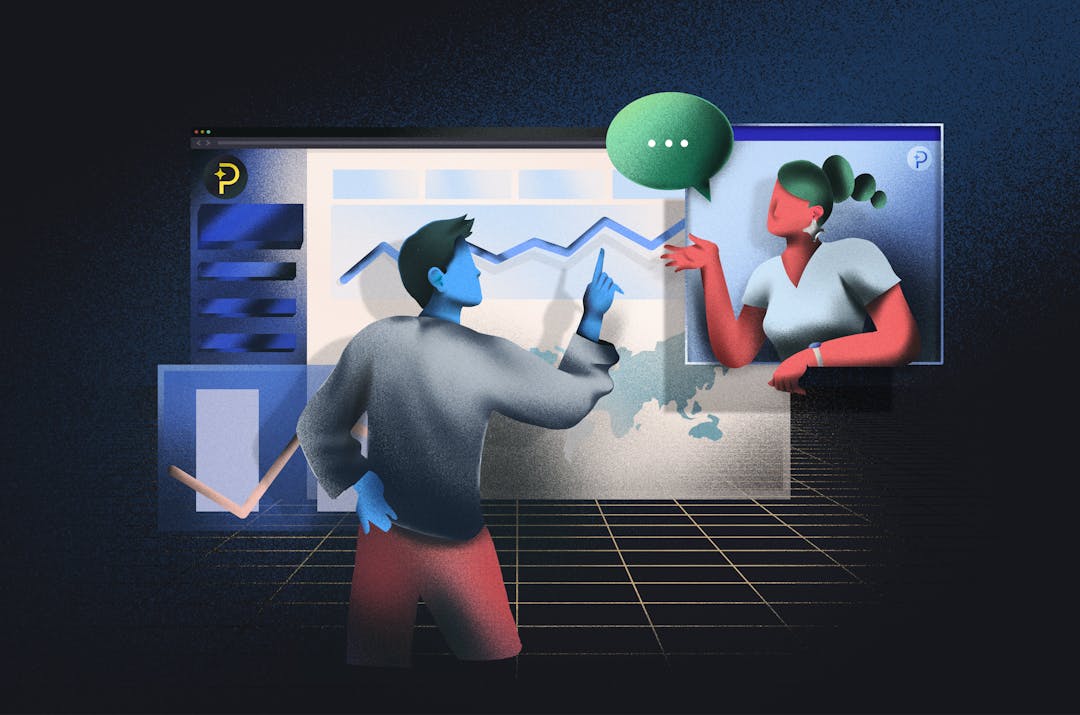B2B account-based marketing (ABM) continues to cook up a storm in the SaaS industry. This incredibly powerful marketing approach helps your company expand into new markets and reach new audiences by creating personalized buying experiences for target, high-value accounts.
This focused growth strategy takes a lot of preparation, cross-department coordination, and good timing to work effectively. But the results are worth it, with 86% of marketers claiming it improves win rates, and 80% saying it has a positive impact on customer lifetime value.
We spoke to Ellie Buggy, who kicked off ABM at Paddle, to find out the lessons she learned along the way.
1) “WTF is ABM?” is a common question
As an industry, SaaS has a lot of acronyms – so it’s understandable why ABM can be seen as just another bunch of letters. Whilst most businesses know they need some kind of targetted marketing strategy, it’s knowing why, who to target, and how to go about it that gets them caught up.
Joining Paddle as the first ABM-specific role, I quickly learned that full internal education about the concept of ABM was necessary to ensure alignment across all commercial functions. This meant defining what we mean by account-based marketing as a business, but also making sure ABM is recognized as an ongoing process.
So, how do you go about educating and re-educating the business about relatively new concepts like account-based marketing? I tackled this in a number of different ways, including:
- Creating documentation and slide decks as a point of reference.
- Offering real-life examples of the breadth and budget that’s available within the ABM strategy.
- Arranging intro sessions for the newbies in their onboarding process.
2) Sales and marketing… name me a better duo
For account-based marketing to work, sales and marketing teams need to get very cozy if you want to create the most efficient target list possible.
To define the set of target accounts you are looking to build an ABM strategy for, you need input from the relevant operations teams, sales, and marketing. Make the most of all the information you have from your existing customers, past marketing campaigns and efforts, and your prospect database. All this data is absolute gold dust for creating successful leads. ✨
Once you have the target list, communication in the following areas are key:
- Strategic targets
- Account specific plan: updates and next steps
Throughout the account planning stages, sales and marketing need to regularly share insights and ideas to ensure total commitment to the final account plan. Not to mention encouraging feedback throughout the campaign to review what worked and what didn’t.
3) Patience IS a virtue
It’s important to realize ABM is a marathon - not a sprint. Success requires patience and hard work, but it sure is worth it when you secure that deal in the end.
The ideal process to win big with ABM is the omnichannel approach. Why? Because it works. But this success doesn’t come without hard work (and time) from your teams.
The omnichannel approach is where you focus on one individual contact and how they would value your product. That contact will receive a number of bespoke marketing touches at different stages of their sales lifecycle, with multiple channels and platforms used throughout.
Let’s take a look at what the process can look like:
- Email marketing
- Webinar invite
- Digital advertising
- Case study share via your sales team
- Newsletter push
- Invite to live event
- Sales outreach
This approach is used to fully educate a contact on what exactly your product does and what value it can bring - intrigue from that content can come in a week after just one touchpoint, or 16 months after seven touchpoints.
ABM is just one approach to gain a new set of leads. How about some tactics for some quick wins? Check out our blog on marketing techniques for start-ups to gain their first 100 users (and beyond).



